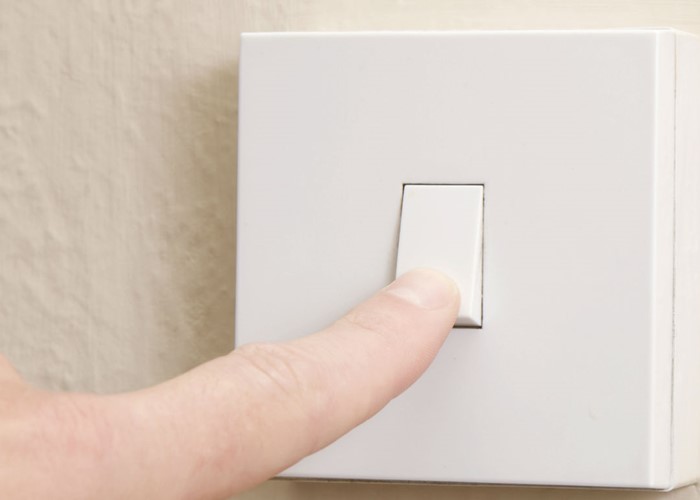The secret trick you can use against your energy provider

Find out how you can fight back against the recent energy price increases...
I can’t say I’m much of a fan of energy price hikes. Unfortunately, several of the major suppliers – Scottish Power, British Gas, and Scottish & Southern – have decided to increase their energy prices recently, and it's likely others will follow suit in the next few weeks.
With money a concern for many of us right now, this really isn’t the news we want to hear. As a result, it may be time to start shopping around for a cheaper energy tariff.
Fight back
Of course, if you are thinking of switching energy providers, one issue you might believe you face is that while you decide which tariff to move to and while the process of switching takes place (which can take a few weeks), you’re going to have to put up with those higher prices from your current provider.
But actually, this isn’t the case at all.
After a new rule introduced in April this year by OFGEM, energy companies have to give you at least 30 days' advance notice of price rises. And once you’ve been informed by letter of the price increase, you have 20 working days (four weeks) in which to reject the rise.
Yes, believe it or not, you have the power to say no to price increases if you’re not happy! If you do decide to do this, however, you must then make arrangements to switch energy providers within 15 working days (so usually three weeks).
As I explained in Take the hassle out of switching, the whole switching process should take between six to eight weeks. So this means that during that time, you can continue to enjoy your current energy prices. In other words, you won’t have to worry about paying out more money on the back of any price hikes.
Get switching
Personally, I think this little trick is well worth taking advantage of. After all, if your energy supplier is threatening price increases, you don’t simply have to put up with them.
And switching energy suppliers really doesn’t have to be difficult. Just take a look at the lovemoney.com gas and electricity comparison centre to find a better deal. Before you start shopping around, however, make sure you have the following details to hand:
- The name of the tariff you’re currently on (this will be on your bill)
- How much you spent on energy in the last year – try to ensure this is an accurate reading, not an estimate
- How you currently pay for your energy (direct debit, cheque, prepayment etc)
- Your postcode
You’ll probably find that by selecting an online tariff and paying by direct debit will also save you money. And it’s well worth experimenting to see whether opting for a dual fuel tariff (where both your electricity and gas comes from the same supplier) works out to be cheaper.
Take note
It's worth pointing out here that if you are tied into a contract with your energy supplier for a set period, there is likely to be a penalty for switching suppliers. So make sure you read the terms and conditions of your contract carefully to ensure you don't get caught out (or give your supplier a ring if you're still not sure).
The best deals
To give you an example of how much you might be able to save, let's take a look at some of the best dual-fuel tariffs for a low, medium and high user.
All data is taken from our gas and electricity comparison centre.
Low-energy user
Here are the top five cheapest tariffs for a low-energy user (using 11,000 kWh gas & 2,100 kWh electricity per year and paying by monthly direct debit).
|
Supplier |
Tariff |
Cost |
|
£ 684 |
||
|
£ 686 |
||
|
£ 693 |
||
|
£713 |
||
|
£714 |
Source: lovemoney.com energy comparison service
Medium-energy user
And here are the five cheapest tariffs for a medium-energy user (using 16,500 kWh gas & 3,300 kWh electricity per year and paying by monthly direct debits).
|
Supplier |
Tariff |
Cost |
|
£ 966 |
||
|
£ 982 |
||
|
£ 983 |
||
|
£1,009 |
||
|
£1,021 |
Source: lovemoney.com energy comparison service
High-energy user
Finally, here are the five cheapest tariffs for a high-energy user (using 23,000 kWh gas & 5,100 kWh elec per year, paying by monthly direct debit).
|
Supplier |
Tariff |
Cost |
|
£ 1,332 |
||
|
£ 1,334 |
||
|
£ 1,371 |
||
|
£1,403 |
||
|
£1,405 |
Source: lovemoney.com energy comparison service
So as you can see, by simply taking the time to switch tariffs, you could save yourself hundreds of pounds! Of course, there’s no ‘one-size fits all rule’ when it comes to energy tariffs, but even so, you’ll probably have noticed that whether you’re a low, medium or high user, the EDF Online S@ver v12 is one of the cheapest, so this appears to be a very competitive tariff.
That said, it’s still important that you shop around and do a little research of your own. Ultimately, the best tariff for you will depend on where you live and how much energy you consume.
So make sure you check out the lovemoney.com gas and electricity comparison centre to ensure you’re definitely getting the right deal for you.
And remember, if your energy supplier informs you it’s putting up its prices, you have the right to say no!
More: Energy prices are about to rocket | OFGEM gives the green light to energy hikes
Comments
Be the first to comment
Do you want to comment on this article? You need to be signed in for this feature